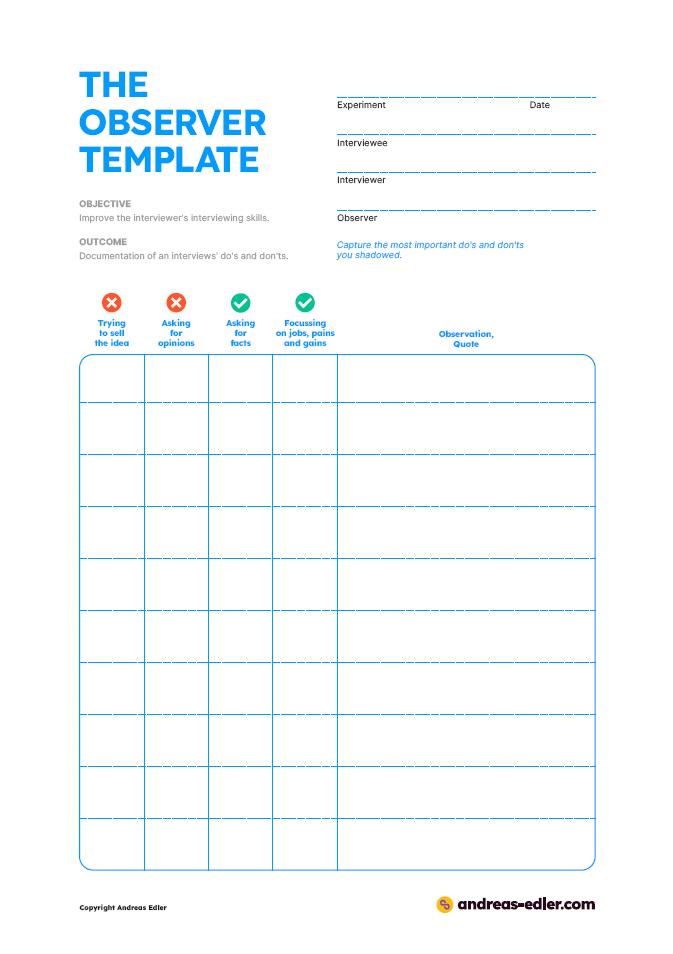The Observer Template
Master the art of customer interviews – effortlessly improve your skills.
Conducting Interviews Best Practices
Following best practices in customer interviews is your safeguard against complacency and self-deception. It forces you to get honest, granular feedback—even if it stings a bit—so you can pivot, innovate, and improve effectively. If you do not implement these standards, you’re cheating your customers and putting your entire strategy at risk.

You can use The Observer Template for free. Instead, I would appreciate your feedback after at least 15 interviews to help me create useful innovation tools!